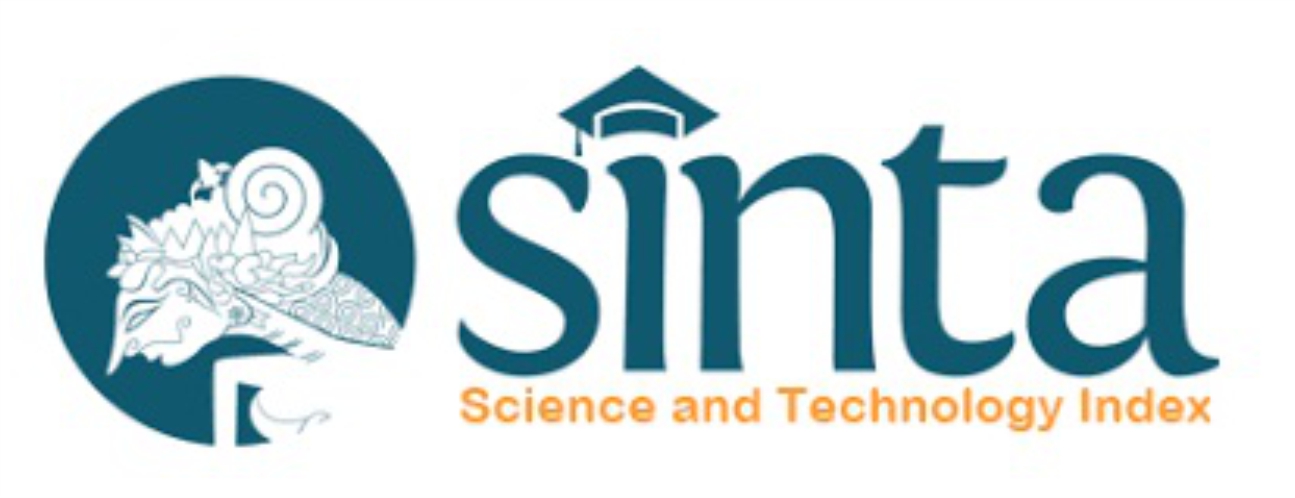PHYTOCHEMICAL SCREENING, TOTAL FLAVONOID, ANTIOXIDANT ACTIVITY, AND TOXICITY OF ETHANOL EXTRACT Cleome gynandra L. HERB
Abstract
Full Text:
PDFReferences
Leong, L.P. and Shui, G., 2002. An investigation of antioxidant capacity of fruits in Singapore markets. Food chemistry, 76(1), pp.69-75. https://doi.org/10.1016/S0308-8146(01)00251-5
Liochev, S.I., 2013. Reactive oxygen species and the free radical theory of aging. Free Radical Biology and Medicine, 60, pp.1-4.
https://doi.org/10.1016/j.freeradbiomed.2013.02.011
Pham-Huy, L.A., He, H. and Pham-Huy, C., 2008. Free radicals, antioxidants in disease and health. International journal of biomedical science: IJBS, 4(2), p.89.
Miyake, T. and Shibamoto, T., 1997. Antioxidative activities of natural compounds found in plants. Journal of agricultural and food chemistry, 45(5), pp.1819-1822. https://doi.org/10.1021/jf960620c
Gupta, V.K. and Sharma, S.K., 2006. Plants as natural antioxidants. Natural Product Radiance, 5(4), 2006, pp.326-334
Amić, D., Davidović-Amić, D., Bešlo, D. and Trinajstić, N., 2003. Structure-radical scavenging activity relationships of flavonoids. Croatica chemica acta, 76(1), pp.55-61.
Sochor, J., Zitka, O., Skutkova, H., Pavlik, D., Babula, P., Krska, B., Horna, A., Adam, V., Provaznik, I. and Kizek, R., 2010. Content of phenolic compounds and antioxidant capacity in fruits of apricot genotypes. Molecules, 15(9), pp.6285-6305.
3390/molecules15096285
Khoddami, A., Wilkes, M.A. and Roberts, T.H., 2013. Techniques for analysis of plant phenolic compounds. Molecules, 18(2), pp.2328-2375. 10.3390/molecules18022328
Silué, D., 2009. Spider plant: An indigenous species with many uses. The world vegetable centre, AVRDC publication, pp.09-719.
Harborne, J.B., 1984. Phytochemical methods. Chapman and Hall, New York, 3, pp.37-201.
Farnsworth, N.R., 1966. Biological and phytochemical screening of plants. Journal of pharmaceutical sciences, 55(3), pp.225-276. https://doi.org/10.1002/jps.2600550302
Chang, C.C., Yang, M.H., Wen, H.M. and Chern, J.C., 2002. Estimation of total flavonoid content in propolis by two complementary colorimetric methods. Journal of food and drug analysis, 10(3), pp. 178-182.
Brand-Williams, W., Cuvelier, M.E. and Berset, C.L.W.T., 1995. Use of a free radical method to evaluate antioxidant activity. LWT-Food science and Technology, 28(1), pp.25-30. 10.1016/S0023-6438(95)80008-5
Meyer, B.N., Ferrigni, N.R., Putnam, J.E., Jacobsen, L.B., Nichols, D.E. and McLaughlin, J.L., 1982. Brine shrimp: a convenient general bioassay for active plant constituents. Planta med, 45(5), pp.31-34. 10.1055/s-2007-971236
Kaur, R. A. J. B. I. R., & Arora, S. A. R. O. J., 2015. Alkaloids-important therapeutic secondary metabolites of plant origin. Journal of Critical Reviews, 2(3), pp.1-8.
Wei, F., Ma, S.C., Ma, L.Y., But, P.P.H., Lin, R.C. and Khan, I.A., 2004. Antiviral Flavonoids from the Seeds of Aesculus c hinensis. Journal of natural Products, 67(4), pp.650-653. https://doi.org/10.1021/np030470h
Widodo, A., Widiyanti, P. and Prajogo, B., 2018. Antiviral activity of Justicia gendarussa Burm. f. leaves against HIV-infected MT-4 cells. African journal of infectious diseases, 12(1S), pp.36-43. 10.2101/Ajid.12v1S.4
Panche, A. N., Diwan, A. D., & Chandra, S. R., 2016. Flavonoids: an overview. Journal of Nutritional Science, 5(47), pp.1-15. 10.1017/jns.2016.41
Céspedes, C.L., 2013. Antioxidant and biocidal activities from natural sources: An overview. Cabi Publishing: Wallingford, Oxfordshire, UK, pp.1-10.
Patel, J. M. (2008). A review of potential health benefits of flavonoids. Lethbridge Undergraduate Research Journal, 3(2), pp.1-5.
Just, M. J., Recio, M. C., Giner, R. M., Cuéllar, M. J., Máñez, S., Bilia, A. R., & Ríos, J. L., 1998. Anti-inflammatory activity of unusual lupane saponins from Bupleurum fruticescens. Planta medica, 64(05), pp.404-407. 10.1055/s-2006-957469
Epand, R. F., Savage, P. B., & Epand, R. M., 2007. Bacterial lipid composition and the antimicrobial efficacy of cationic steroid compounds (Ceragenins). Biochimica et Biophysica Acta (BBA)-Biomembranes, 1768(10), pp.2500-2509.
1016/j.bbamem.2007.05.023
Chauhan, N. S., Sharma, V., Dixit, V. K., & Thakur, M., 2014. A review on plants used for improvement of sexual performance and virility. BioMed research international, 24, pp.1-19. 10.1155/2014/868062
Chung, K. T., Wong, T. Y., Wei, C. I., Huang, Y. W., & Lin, Y., 1998. Tannins and human health: a review. Critical reviews in food science and nutrition, 38(6), pp.421-464. 10.1080/10408699891274273
Chebil, L., Humeau, C., Anthoni, J., Dehez, F., Engasser, J. M., & Ghoul, M., 2007. Solubility of flavonoids in organic solvents. Journal of Chemical & Engineering Data, 52(5), pp.1552-1556. https://doi.org/10.1021/je7001094
Ferreira, O. and Pinho, S.P., 2012. Solubility of flavonoids in pure solvents. Industrial & Engineering Chemistry Research, 51(18), pp.6586-6590.
https://doi.org/10.1021/ie300211e
Do, Q.D., Angkawijaya, A.E., Tran-Nguyen, P.L., Huynh, L.H., Soetaredjo, F.E., Ismadji, S. and Ju, Y.H., 2014. Effect of extraction solvent on total phenol content, total flavonoid content, and antioxidant activity of Limnophila aromatica. Journal of food and drug analysis, 22(3), pp.296-302. 10.1016/j.jfda.2013.11.001
Ira, S., Manisha, M., Singh, G.P. and Anirudha, R., 2014. Quantitative estimation of phenolic and flavonoid content and antioxidant activity of various extracts of different parts of Plumbago zeylanica Linn. Int. J. Drug Dev. & Res, 6(2), pp.136-140.
Solis, P.N., Wright, C.W., Anderson, M.M., Gupta, M.P. and Phillipson, J.D., 1993. A microwell cytotoxicity assay using Artemia salina (brine shrimp). Planta medica, 59(3), pp.250-252. https://doi.org/10.1055/s-2006-959661
Lu, J.J., Bao, J.L., Chen, X.P., Huang, M. and Wang, Y.T., 2012. Alkaloids isolated from natural herbs as the anticancer agents. Evidence-Based Complementary and Alternative Medicine, 2012. http://dx.doi.org/10.1155/2012/485042
DOI: https://doi.org/10.18860/jip.v3i2.6101
Refbacks
- There are currently no refbacks.
Copyright (c) 2018 Agustinus Widodo, Ritha Pratiwi
© 2023 Journal of Islamic Pharmacy













